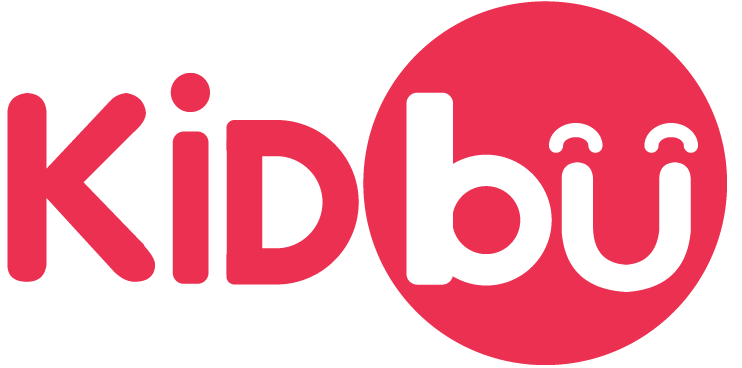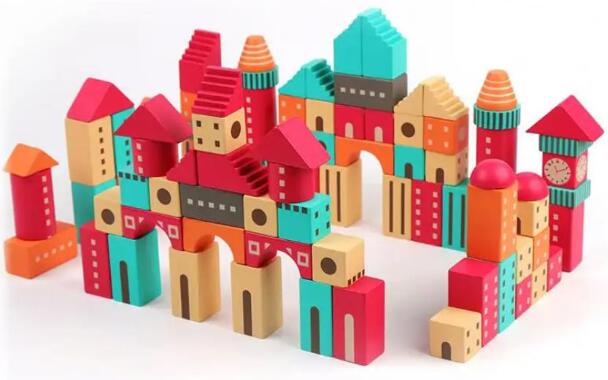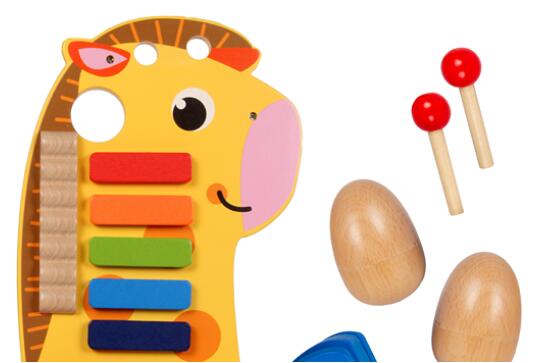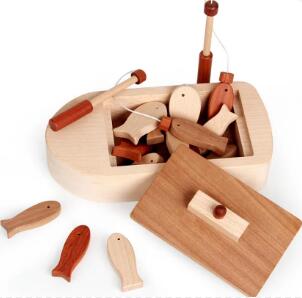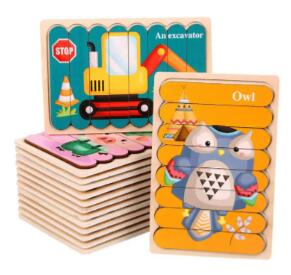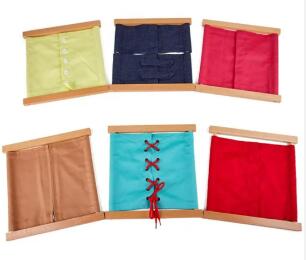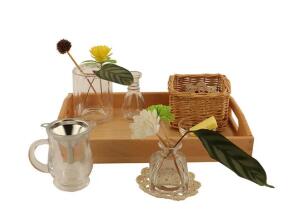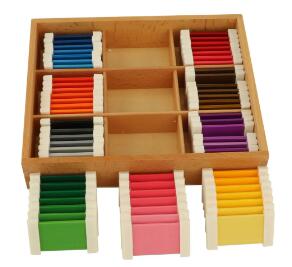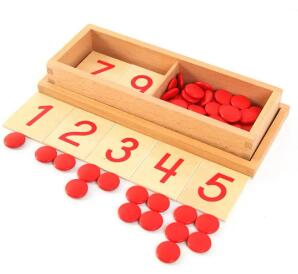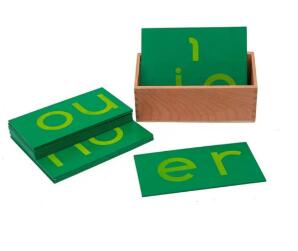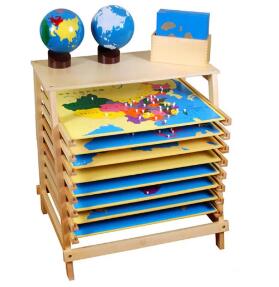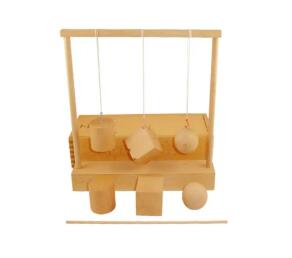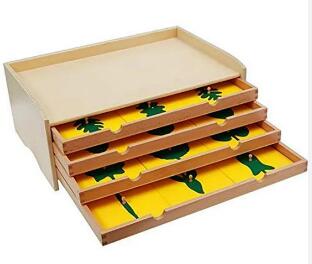Montessori Toys Explained: Fostering Your Child's Independence
Montessori wooden toys
At KIDBU, we're passionate about creating toys that align with this philosophy, and most of our products perfectly fit the definition of what a Montessori toy should be and do. With so many choices available, it can be confusing to figure out which toys genuinely help your child become independent and freely explore.
Request A QuoteMontessori Toys Explained: Fostering Your Child's Independence
You might be familiar with the Montessori approach, perhaps from your child's preschool or an early education course. But for many new parents, hearing "Montessori toy" can lead to a polite nod, while they secretly wonder what that really means.
While fully exploring the entire Montessori method would take a while, gaining a basic understanding of the toys that create rich learning opportunities is much more accessible. Dr. Maria Montessori herself believed the most important toys "lend interest to activity and invite the child to conduct their own experiences."
Long before modern plastics, children naturally played with simple materials found in nature, like rocks, sticks, and wood. This timeless connection highlights a fundamental truth: children are drawn to what's real and tangible. Today, wooden toys continue this legacy, offering significant advantages for both our children and the planet.
The Enduring Appeal of Wooden Toys
Wooden toys aren't just charming; they're inherently ecological and sustainable. Crafted from natural materials, they're built to last for generations, reducing waste and offering a truly eco-friendly play option. Beyond their environmental benefits, wooden toys provide immense value for a child's development.
Unlocking Learning Through Play
Toys, and play itself, serve a dual purpose: they entertain while also fulfilling an educational role. Wooden toys, especially those designed with learning in mind, significantly enhance a child's cognitive abilities, stimulate creativity, and aid in developing essential physical and mental skills.
Consider the humble set of wooden blocks. Did you know this seemingly simple toy is actually one of the most effective tools for developing young minds? Playing with wooden blocks helps children refine hand-eye coordination, grasp fundamental math and science concepts through hands-on exploration, and foster boundless creativity and autonomy. The repetitive nature of engaging with a single, versatile toy also strengthens memory, aligning perfectly with the teaching and learning principles of Dr. Maria Montessori.
- Educational Wooden Stacking Toys Set Building Blocks for Kids
What Exactly is the Montessori Approach to Learning?
Let's begin by understanding the origins of this influential educational philosophy and what you might see in a Montessori classroom. The Montessori method was developed by Dr. Maria Montessori, a pioneering Italian doctor from the early 1900s. She broke gender barriers, championed women's rights, and passionately advocated for the education of all children, especially those facing learning challenges. Central to her philosophy is fostering independence from a young age. She achieved this by meticulously preparing learning environments with specific "educational tools," allowing children to "work" at their own pace with uninterrupted focus.
The Montessori Classroom Experience
Typical Montessori classrooms are filled with beautifully crafted learning tools, often made from natural materials. Various stations are set up, allowing children to progress through the curriculum at their individual speed, either accelerating or taking more time as needed. Open shelves display a range of "works" related to different subjects (like number or letter activities). Children can select these, set them up on a table or floor, and repeat the activity until they've mastered it or are ready for a new exploration. Throughout their day, children invent, experiment, discuss, create, prepare snacks, read, and explore the world through play and learning objects.
Defining a Montessori Toy
It's these "learning objects," or toys, that form a core part of the Montessori classroom. While there are no "official" Montessori-certified toys, certain ones perfectly align with the philosophy, promoting the characteristics Dr. Montessori deemed vital for a child's development.
The most important quality of a Montessori-aligned toy is its ability to spark curiosity and allow for the repetition of skills that mimic everyday life. This is a broad concept, so here are more specific traits to look for when selecting toys for a Montessori-style play space:
Natural Materials: Children learn best by engaging multiple senses. The Montessori philosophy emphasizes this sensory-rich learning, believing that toys made from natural materials like wood, cotton, and metal truly awaken the senses.
Free of Distractions: Montessori classroom toys typically lack distracting noises, lights, or sounds (think no battery-operated gadgets). The child must actively manipulate the toy, learning directly from their actions and building meaningful connections between cause and effect.
Rooted in Reality: While Montessori encourages imaginative play, Dr. Montessori believed children should first engage with toys that accurately reflect the real world before delving into fantasy. For instance, early childhood Montessori classrooms might feature realistic animal figures over magical creatures.
Teach One Skill at a Time: Similar to minimizing distractions, focusing on a single skill prevents overwhelm and encourages deeper learning. Montessori-aligned toys usually have a clear, specific purpose, like a hammer-tapping toy.
Child-Sized and Purposeful: Montessori classrooms are equipped with child-sized tools, tableware, and utensils. These smaller, functional items empower children to assist with daily tasks, learn practical skills, foster independence, and contribute to their environment.Encourage Independence: Beyond child-sized tools, many Montessori-aligned toys promote independence by facilitating open-ended play scenarios that don't require strict instructions. Block play is a prime example of this, encouraging independent thought.
Promote STEM Skills and Cause & Effect: Exploration is fundamental to Montessori. Providing toys that allow children to test and experiment helps them understand the world. Through such play, children develop an early grasp of physics and math concepts. Toys like marble runs are excellent for exploring cause and effect, problem-solving, and spatial relationships.
Encourage Repetition: When children repeatedly engage with a simple challenge, strong neural connections form, leading to learning. Mastering repetitive tasks improves dexterity and spatial awareness, preparing them for more complex activities. Threading games, for example, prepare young children for more intricate tasks like sewing in the Montessori classroom.
Why KIDBU Toys Align with the Montessori Model
When you explore the KIDBU toy catalog, you'll find numerous toys that meet these criteria. Our main goal at KIDBU is to foster a child's inherent sense of wonder and love for learning, which guides the design of all our products. Many of our toys are made from wood, promote open-ended play, are driven by imagination rather than batteries, and encourage STEM learning. We also offer various games, tools, and toys that promote independent play and learning. While it was challenging to choose just ten, these are the types of toys you'll most often see in a Montessori classroom.
KIDBU's top 10 Montessori Wooden Toys
Montessori At Kidbu, Montessori education emphasizes that children learn through independent exploration and practice. Toys in Montessori schools are usually designed to match this educational approach. For example, these toys allow children to naturally learn mathematical concepts (such as quantity, shape, size comparison, etc.), language skills (letter recognition, vocabulary construction, etc.) and life skills (such as dressing, buttoning, etc.) and other knowledge and skills in the process of playing, promoting the comprehensive development of children.
01. Wooden fishing game, children's early education dive into a world of fun and early learning with KIDBU's Wooden Fishing Game! This charming magnetic toy is designed to captivate young minds and develop essential skills. Crafted from smooth, natural wood and painted with vibrant, non-toxic colors, it's safe and engaging for toddlers.
Children use the magnetic fishing rod to "catch" colorful fish, promoting crucial hand-eye coordination and fine motor skills. As they play, they'll naturally enhance color recognition and problem-solving abilities. This Montessori-inspired toy encourages independent exploration and provides endless opportunities for repetitive, skill-building play, making it a perfect addition to any early education environment.
02. Educational Learning Montessori children's Creativity Strip Shape 3d Wooden Jigsaw Puzzles with KIDBU's Montessori-inspired Wooden Strip Shape 3D Jigsaw Puzzles! These unique puzzles go beyond traditional flat jigsaws, challenging young minds to think in three dimensions. Crafted from high-quality, natural wood, each puzzle piece is designed for small hands to grasp and manipulate, promoting excellent fine motor skills and hand-eye coordination. As children fit the strip-shaped pieces together, they'll develop spatial reasoning, logical thinking, and concentration. Free from distracting lights or sounds, this toy encourages independent play and self-discovery, aligning perfectly with Montessori principles for meaningful learning and imaginative construction.
03. Montessori Wooden Clothes Dressing Toys Educational Life Skill Teaching Toy using KIDBU's Montessori Wooden Clothes Dressing Toys! This educational teaching toy is designed to help toddlers master the practical life skills needed for independent dressing. Crafted from smooth, durable wood, this toy features various fasteners like buttons, zippers, snaps, and buckles, allowing children to practice manipulating different clothing closures. By engaging with these realistic elements, kids enhance their fine motor skills, hand-eye coordination, and problem-solving abilities. This Montessori-aligned tool fosters concentration, builds confidence, and encourages autonomy, preparing your child for everyday tasks in a fun and engaging way.
04. Montessori Kids Wooden Educational Children Toy practical life montessori with KIDBU's Montessori Wooden Practical Life Toy! Designed to mirror everyday activities, this engaging wooden set helps children develop independence and self-confidence through purposeful play. Crafted from high-quality, natural wood, the toy features various components that encourage children to practice skills like sorting, stacking, and manipulating objects, directly supporting fine motor development and hand-eye coordination. Free from electronic distractions, it fosters concentration and problem-solving. This Montessori-aligned toy empowers children to confidently engage with their environment, building foundational practical life skills in a hands-on, enriching way.
05. Sensorial Kids Wooden Educational Children Toy Color Tablets inspired by the classic Montessori material, this toy is designed to refine color discrimination and build a keen appreciation for hues and shades. Crafted from smooth, natural wood, these tablets isolate the concept of color, allowing children to focus purely on visual distinctions. As they match and sort the vibrant tablets, children develop their visual perception, concentration, and an early understanding of chromatic order. This hands-on, self-correcting material fosters independent learning and sensory exploration, making it a valuable tool for developing a child's understanding of the colorful world around them.
06. mathematics material educational wooden montessori math toy This carefully designed material provides a hands-on approach to foundational math skills, encouraging children to explore numbers and quantities in a tangible way. Crafted from natural, smooth wood, this toy allows children to develop one-to-one correspondence, understand number sequencing, and begin to grasp basic arithmetic through manipulation. Free from overwhelming distractions, it fosters deep concentration and independent problem-solving. This Montessori-aligned math toy supports a child's natural curiosity about numbers, building a strong foundation for future mathematical understanding through engaging, repetitive "work."
07. Wooden montessori materials toys Sandpaper letters wood arabic teaching toys This sensory language material is designed to provide a tactile foundation for learning Arabic script.
Each letter is crafted from smooth wood with a textured sandpaper surface, inviting children to trace the shapes with their fingers. This multi-sensory approach engages visual, auditory, and tactile senses, aiding in letter recognition and muscle memory essential for writing. Ideal for early language development, this Montessori-aligned toy fosters concentration, prepares children for reading and writing in Arabic, and offers a hands-on way to explore a new language.08. Children's educational teaching toys map frame Chinese puzzle a fantastic way to introduce your child to the geography of China! This engaging puzzle is designed to help young learners develop an understanding of China's provinces and regions in a hands-on, interactive way.
Crafted with durable, child-safe materials, each puzzle piece represents a different part of China, encouraging fine motor skills, spatial reasoning, and problem-solving. As children fit the pieces into the map frame, they naturally learn geographical names and locations, fostering a deeper appreciation for the world. This educational toy makes learning geography fun and accessible, perfect for curious minds.
Introduce your child to the geography of China with KIDBU's Educational Map Frame Chinese Puzzle! This engaging wooden puzzle offers a hands-on approach to learning about the regions of China.
Crafted from natural wood, each piece of this puzzle represents a different province or region, allowing children to learn about geographical shapes and locations through tactile exploration. As they fit the pieces into the frame, children develop spatial reasoning, fine motor skills, and problem-solving abilities. This Montessori-aligned toy encourages independent learning and fosters an early appreciation for diverse cultures and global geography, making learning about China an interactive and memorable experience.09. Wooden Montessori Educational Early Development Preschool Training Learning Educational Toys Froebel Gabe Predating even Montessori, Friedrich Froebel, the founder of Kindergarten, developed these "gifts" to foster a child's innate creativity and understanding of the world. Crafted from natural wood, these simple yet profound geometric forms – spheres, cylinders, and cubes – encourage open-ended exploration. Children develop spatial reasoning, problem-solving skills, and fine motor control as they build, sort, and discover relationships between shapes. This toy promotes independent discovery and lays a foundational understanding of mathematics, engineering, and art, embodying a timeless approach to learning through play.
10. Learning Toys Montessori Materials Set Montessori Material Botany Cabinet biology This essential sensorial and biology material introduces children to the diverse shapes and classifications found in nature. Crafted with a sturdy wooden cabinet and featuring precise insets, this set allows children to visually and tactilely explore various leaf forms. By tracing the outlines and matching the shapes, children develop visual discrimination, fine motor skills, and an early understanding of biological classification. This self-correcting, Montessori-aligned tool fosters concentration, prepares for more advanced botany studies, and cultivates a deeper appreciation for the natural world around them.
Selectiong By Age
 Languages
Languages
